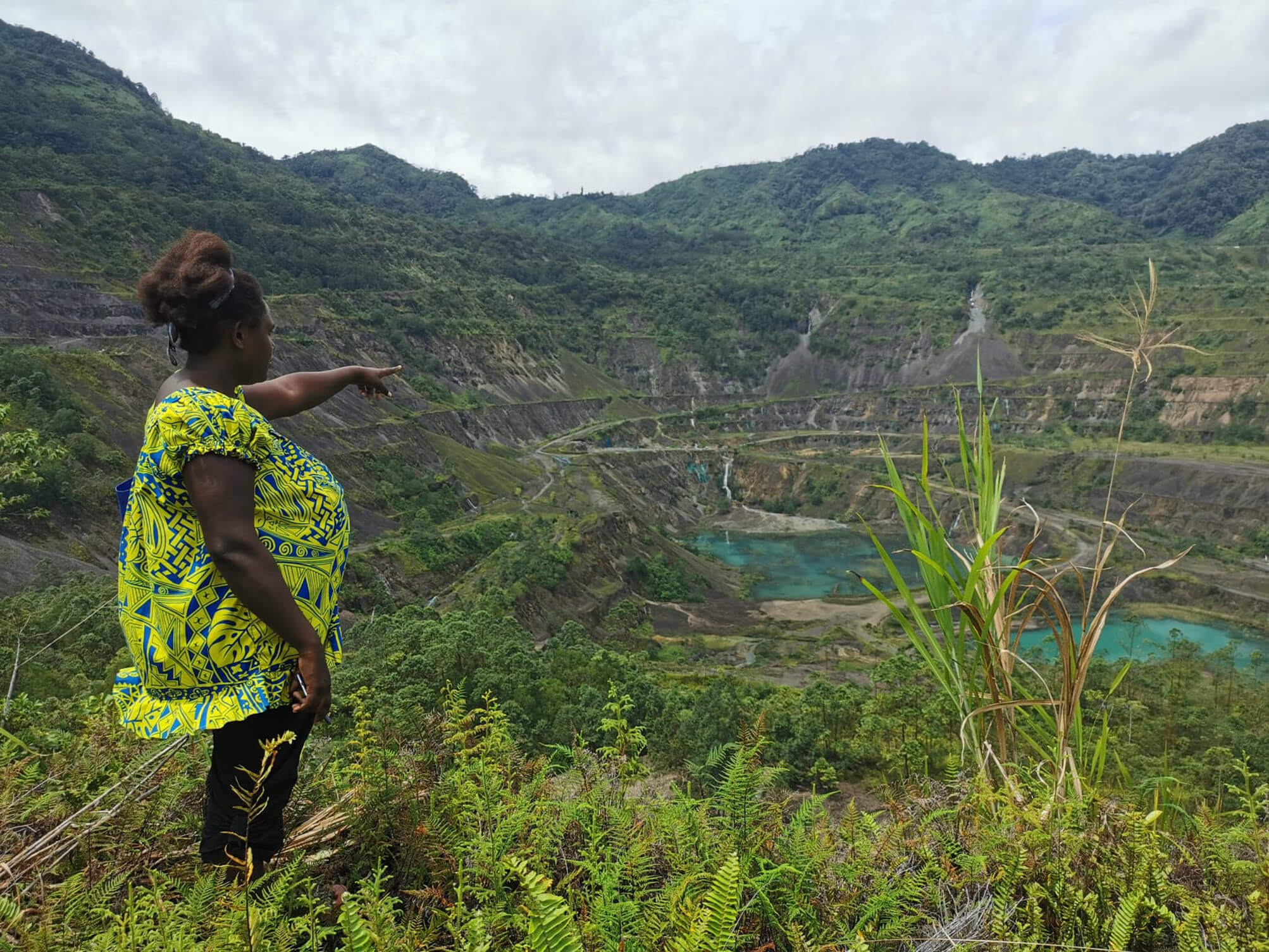Today, Rio Tinto announced that they will fund an independent assessment of the environmental and social impacts of its Panguna Mine in Bougainville. This is a result of a human rights complaint filed by the Human Rights Law Centre on behalf of Bougainville communities.
The complaint, signed by 156 community members, alleged that the mine continues to have devastating impacts on their environment and livelihoods, even 30 years after its closure. According to the community members, the abandoned mine site is leaking waste into their rivers, poisoning their water sources and causing health issues such as skin diseases and respiratory conditions.
The complaint was filed with the Australian OECD National Contact Point in September 2020, and it asked Rio Tinto to fund an independent impact assessment of the site and contribute to a clean-up and rehabilitation.
 Theonila Roka Matbob pointing to the Panguna mine site
Theonila Roka Matbob pointing to the Panguna mine site
In a press release today by Human Rights Law Centre, traditional landowner and MP Theonila Roka Matbob, representing the communities involved in the complaint, said:
“This is an important day for communities on Bougainville. Our people have been living with the disastrous impacts of Panguna for many years and the situation is getting worse. The mine continues to poison our rivers with copper. Our kids get sick from the pollution and communities downstream are now being flooded with mine waste. Some people have to walk two hours a day just to get clean drinking water. In other areas, communities’ sacred sites are being flooded and destroyed.
“These problems need to be urgently investigated so solutions can be developed and clean-up can begin. Today’s announcement gives us hope for a new chapter for our people. We look forward to working with Rio Tinto, the Human Rights Law Centre and our own government and communities to ensure work on the assessment can start as soon as possible.”
Dina Rui, Campaigns Director of Jubilee Australia, said:
“Human Rights Law Centre and Jubilee Australia visited Panguna back in 2019, more than 30 years after the mine closure. From a lack of access to clean water to children having to navigate dangerous quicksand terrain created by the tailings - it was clear that the situation was worsening, not improving. One of the most egregious examples of the ongoing impacts was the destruction of the Konawiru Wetlands in the lower tailings area. In January 2019, tailing waste from the mine completely overflooded the area, which had been an important hunting, fishing and farming ground for the local people. Now the wetland is filled with mud and dead trees.”
Luke Fletcher, Executive Director of Jubilee Australia, said:
"Today's announcement is a welcome development for the people of Panguna and the downstream tailings area, as Rio Tinto is at least taking some responsibility for addressing the toxic legacy of the Panguna mine. Although we welcome this necessary first step, we would like to note that Rio Tinto is still to address its impacts, both legacy issues and failures regarding community consent, across many parts of the planet, in places such as Mongolia, Madagascar, and Arizona, to name just a few."
When the impact assessment is ready, Human Rights Law Centre, the community representatives, Rio Tinto and other relevant stakeholders will meet to discuss the assessment's recommendations and the next steps. Hopefully, the result will be for Rio Tinto to fund a clean-up of the mine site.
